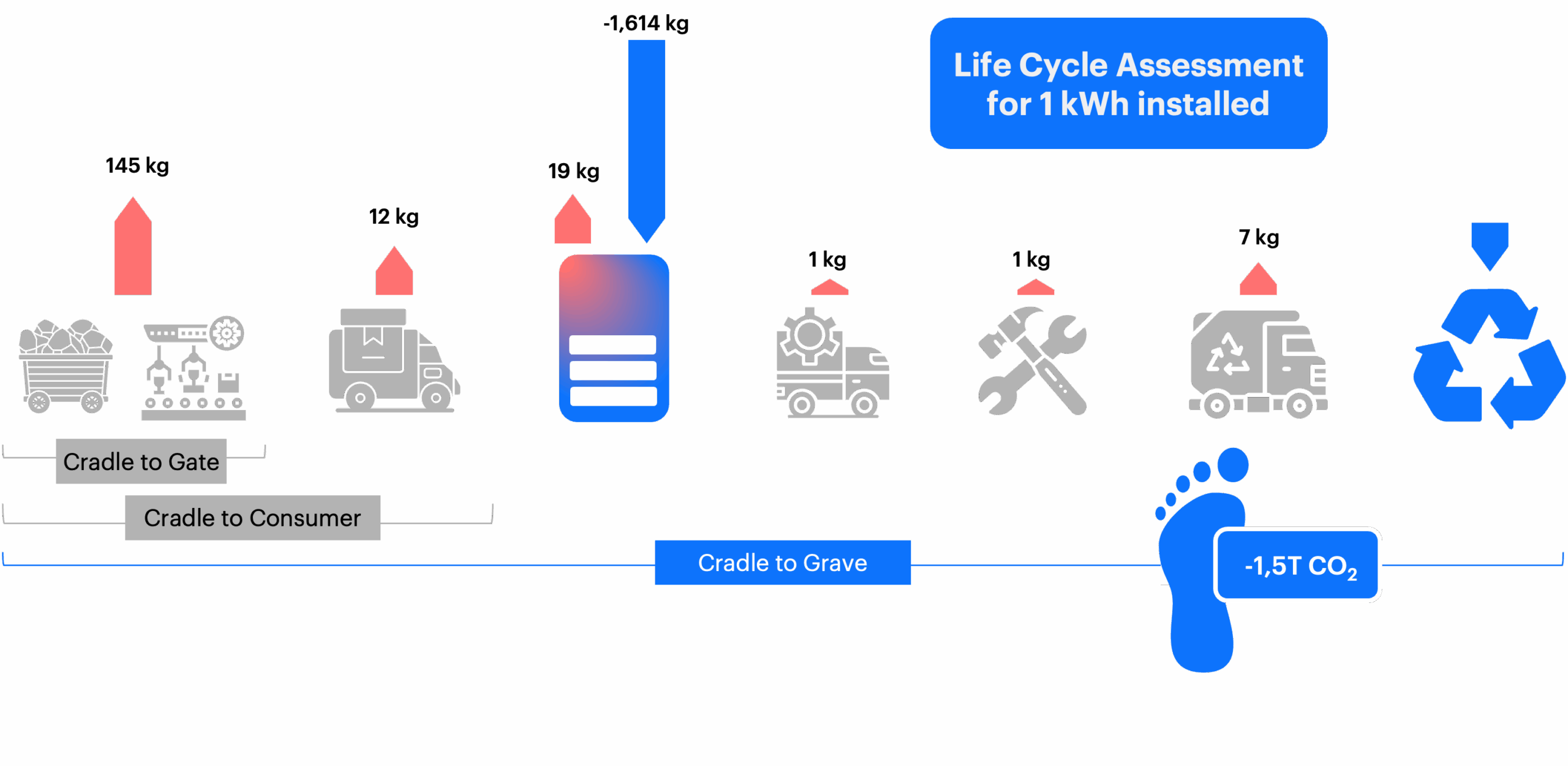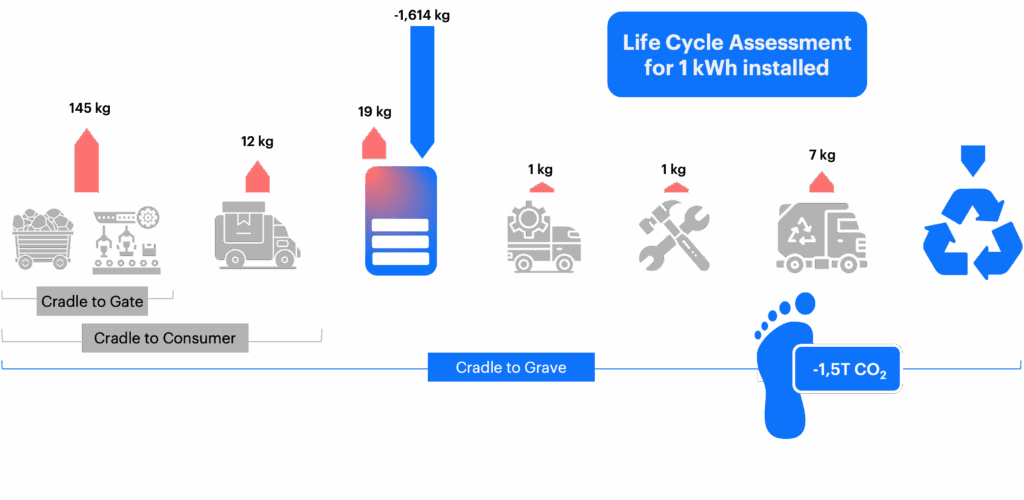
BESS Footprint
BESS Life Cycle Analysis
Optimizing a Battery Energy Storage System (BESS) for sustainability involves understanding its carbon footprint, which is significantly influenced by the energy-intensive processes of materials extraction and manufacturing.
Despite these initial environmental costs, the long-term benefits of a smart BESS are substantial. Throughout its lifespan, the system offsets its carbon footprint by enhancing energy efficiency, reducing reliance on fossil fuels, and promoting the use of renewable energy sources.
By storing excess energy generated from renewables and deploying it during peak demand, BESS plays a crucial role in minimizing greenhouse gas emissions and supporting a more sustainable energy grid. Investing in a smart BESS not only contributes to environmental conservation but also offers economic advantages by lowering energy costs and improving grid stability.

Conducting an independent Full Life Cycle Analysis (LCA) of a Battery Energy Storage System (BESS) reveals significant environmental benefits, with each kWh of battery capacity contributing to 1.5 tons of CO2 equivalent savings over its lifespan.
For instance, for a 15kWh capacity, you will offset 22,5 Tons of cO2 eq.
(100x the actual weight of the battery!)
